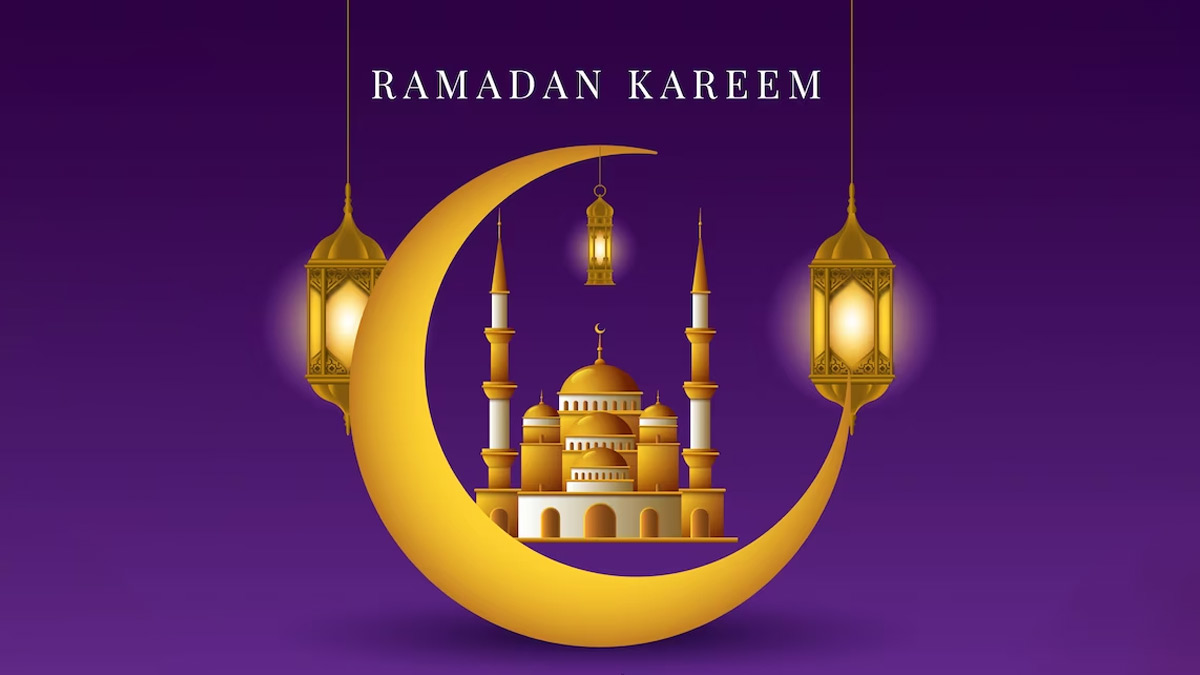Ramadan, alternatively known as Ramzan, holds a central position in the Islamic lunar calendar and is esteemed by Muslims worldwide. Recognised as the ninth month, it carries deep significance characterised by fasting (roza), prayers, contemplation, and communal assemblies. Through the practises of fasting, prayer, and charitable acts, followers embark on a journey of personal transformation, fostering inner reflection and renewal.
What Is Ramadan?
Ramadan originates from the Arabic root ramida or ar-ramad, signifying 'scorching heat.' It stands as one of the five pillars of Islam, alongside Shahada (profession of faith), Salat (Prayer), Zakat (Almsgiving), Sawm (Fasting), and Hajj (Pilgrimage). The pre-dawn meal consumed before initiating the fast is known as sehri or suhoor, while iftar is the meal that concludes the fast after the evening call to prayer, Maghrib.
In the sacred month of Ramadan, adherents maintain a steadfast belief that malevolent forces are restrained in hell, offering protection from evil spirits. This auspicious period becomes a time of deep devotion, spiritual purification, and the reaffirmation of faith for believers.

When Is Ramadan 2024?
This year, the sacred month is anticipated to commence either on March 11 or 12, concluding on April 9 or 10, contingent upon the sighting of the moon (moon sign) in Mecca. Due to the lunar nature of the Islamic calendar, Ramadan shifts about ten days earlier in the Gregorian calendar each year. The daily fasting, from sunrise to sunset, may span from 12 to 17 hours, varying based on your geographical location.
The start date may exhibit slight discrepancies in different regions across the globe. Countries like the United Arab Emirates, Saudi Arabia, and the United States are likely to begin Ramadan on March 11. In contrast, nations like India, Bangladesh, and Egypt may observe the commencement on March 12.
Don't Miss:March 2024 Festival Calendar : Full List Of National And International Events
History Of Ramadan
According to History.com, Muslims hold the belief that it was in A.D. 610 during Ramadan when God initially communicated with Prophet Muhammad. In adherence to Islamic tradition, Muhammad would regularly retreat to a small cave named Hira on the outskirts of Makkah during Ramadan for solitary meditation and reflection. It was on one of the odd nights within the last 10 days of Ramadan that he heard a voice instructing him to 'read' (meaning of the word iqra), marking the commencement of Qur'anic revelations.
By religious texts, Muslims also believe that during Ramadan, all demons are confined with chains in hell, ensuring an undisturbed environment for those engaged in prayer to Allah. The gates of Jannah (Paradise) are said to be opened, while the gates of Jahannum (hell) remain locked along with the demons.

Significance Of Ramadan
Observing fasting, known as ṣawm, is a fundamental aspect of being a Muslim during Ramadan. This entails abstaining from eating, drinking, and undesirable behaviours from sunrise to sunset. Muslims conclude their daily fast with an evening meal called ifṭār, often commencing with dates under the tradition of Prophet Muhammad. Additionally, special nightly prayers called tawarīḥ are performed.
Don't Miss:Ramadan 2024 Schedule: Sehri & Iftar Timings
Throughout Ramadan, Muslims modify their daily routines, potentially reducing work during the day and increasing prayers at night. Some communities use drums or bells to assist in waking up for the pre-dawn meal. The spiritual rewards of fasting, known as 'Thawab,' are believed to multiply during Ramadan, a time when Muslims refrain from food, drink, smoking, sexual activities, and sinful behaviours. Instead, they focus on prayer, self-improvement, charity, and taqwa, which signifies heightened awareness of God. Suhoor, also spelled suhur or sehri, is the pre-dawn meal before the morning prayer, Fajr, while iftar is the nightly feast that breaks the fast after the evening prayer, Maghrib.
Keep reading Herzindagi for more such updates.
Credits: Freepik
